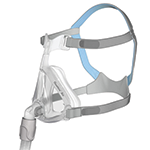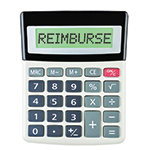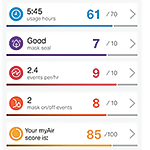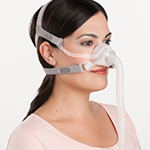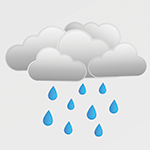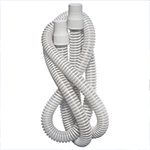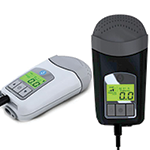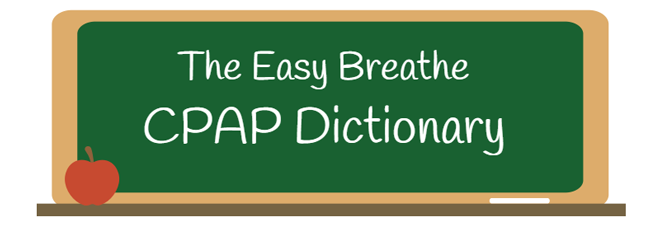
A B C D E F G H I J K L M N O P Q R S T U V W X Y Z
It’s almost time to go back to school, so we put together a CPAP dictionary with the basic terms every CPAP user should know. There are many new terms to keep track of when starting out with CPAP therapy, but never fear. Your CPAP Dictionary is here! Keep this list of important terms handy and you’ll be able to navigate your therapy options with ease!
Auto-Titrating Machine (APAP) –
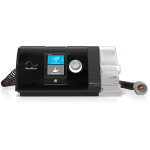 Commonly referred to simply as “automatic machines”, these machines detect your breathing patterns, and continually automatically adjust the pressure to suit your specific needs.
Commonly referred to simply as “automatic machines”, these machines detect your breathing patterns, and continually automatically adjust the pressure to suit your specific needs.
All these names refer to a machine with two pressure settings (inspiratory and expiratory pressure) instead of just one. These are prescribed by your physician for certain (generally) more severe cases of sleep apnea.
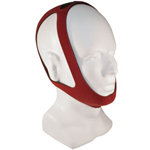 A strap that goes around the top of the head and under the chin to help keep the jaw closed. These are used by patients who breathe through their mouths while sleeping to keep the mouth closed while using a nasal or nasal pillow mask.
A strap that goes around the top of the head and under the chin to help keep the jaw closed. These are used by patients who breathe through their mouths while sleeping to keep the mouth closed while using a nasal or nasal pillow mask.
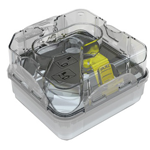 Cleanable chambers are humidifier chambers that usually have a removable top to make cleaning them easier.
Cleanable chambers are humidifier chambers that usually have a removable top to make cleaning them easier.
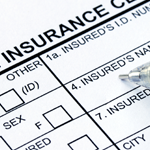 The percentage of your eligible medical expenses you are responsible for out of pocket after your deductible has been met.
The percentage of your eligible medical expenses you are responsible for out of pocket after your deductible has been met.
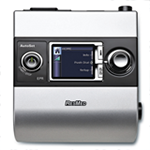 Stands for Continuous Positive Airway Pressure Machine. This is the machine that generates the airflow.
Stands for Continuous Positive Airway Pressure Machine. This is the machine that generates the airflow.
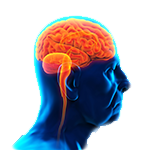 A type of sleep apnea caused by failure of the brain to send proper signals to muscles that control breathing during sleep.
A type of sleep apnea caused by failure of the brain to send proper signals to muscles that control breathing during sleep.
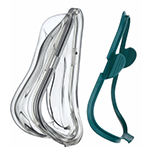 The soft seal found around the edge of the mask that goes against your skin. These are found on nasal masks and full-face masks.
The soft seal found around the edge of the mask that goes against your skin. These are found on nasal masks and full-face masks.
Data –
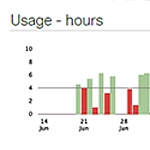 Newer machines record sleep data so you can track your CPAP usage and progress. These measure statistics such as hours sleeping and number of apneas throughout the night.
Newer machines record sleep data so you can track your CPAP usage and progress. These measure statistics such as hours sleeping and number of apneas throughout the night.
 The amount that you must accumulate in expenses paid out of pocket before expenses are subject to the coinsurance specified by your plan.
The amount that you must accumulate in expenses paid out of pocket before expenses are subject to the coinsurance specified by your plan.
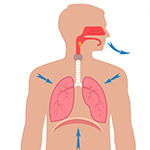 Stands for Expiratory Pressure Relief. This is a setting on some machines that reduces the pressure slightly while you are exhaling, to make it easier to breathe out against the pressure.
Stands for Expiratory Pressure Relief. This is a setting on some machines that reduces the pressure slightly while you are exhaling, to make it easier to breathe out against the pressure.
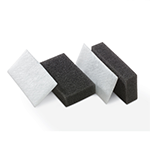
These small foam pieces go in your machine to prevent dirt, dust particles and other allergens in the air from going into your machine. They should be replaced regularly to keep your machine clean, and to keep you healthy and breathing clean air!
Stands for Flexible Spending Account. An FSA is a type of account offered by some employers that can be used to pay for certain out-of-pocket health care costs. You don’t have to pay taxes on this money. The balance in these types of accounts generally must be spent within a designated time period, or the funds expire.
A mask that covers the mouth and nose. These are a good choice if you breathe through your mouth while you sleep.
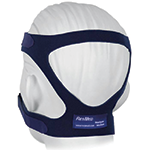 The straps that hold your mask in place. Each mask has a specific headgear that goes with it.
The straps that hold your mask in place. Each mask has a specific headgear that goes with it.
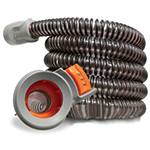 A tube with an integrated heating element to prevent condensation from building up inside.
A tube with an integrated heating element to prevent condensation from building up inside.
Stands for Health Reimbursement Account. An HRA is an IRS approved, employer-funded, tax-advantaged employer health benefit plan that reimburses employees for certain out-of-pocket medical expenses and individual health insurance premiums. These are provided by some employers to help cover certain qualifying expenses not covered by the individual’s insurance policy.
Stands for Health Savings Account. An HSA is a tax-advantaged medical savings account available to taxpayers in the United States who are enrolled in a high-deductible health plan (HDHP). The funds contributed to an account are not subject to federal income tax at the time of deposit.
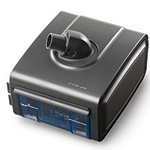 An attachment for your machine that helps enhance comfort and prevent dry mouth by adding moisture to the air and helping control air temperature. Do you need one?
An attachment for your machine that helps enhance comfort and prevent dry mouth by adding moisture to the air and helping control air temperature. Do you need one?
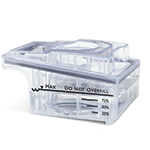 The plastic container that goes inside the humidifier to hold your water.
The plastic container that goes inside the humidifier to hold your water.
ResMed’s sleep data management program that makes it easy to track and view the data measured by your ResMed machine.
A mask that covers the nose but sits above the mouth. This style is a popular choice for patients who sleep with their mouth closed.
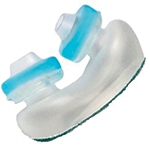 The part or parts of the nasal pillow mask that fit into the nostrils. These can be replaced. Insurance covers a new set every 2 weeks.
The part or parts of the nasal pillow mask that fit into the nostrils. These can be replaced. Insurance covers a new set every 2 weeks.
A mask with two small inserts that go into the tips of the nostrils. The smallest, least-obstructive type of mask.
OSA (Obstructive Sleep Apnea) –
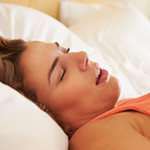 The most common type of sleep apnea, caused by an obstructed airway, which interferes with normal breathing patterns during sleep.
The most common type of sleep apnea, caused by an obstructed airway, which interferes with normal breathing patterns during sleep.
Once this amount has been reached, your eligible medical expenses are no longer subject to the coinsurance rate designated by your plan, and should be covered in full.
The buildup of condensation in your tube when a humidifier is used in a cold environment. A heated tube can help prevent this from happening.
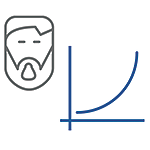
A setting on some newer machines that slowly increases the pressure until it reaches necessary levels to enhance comfort and make it easier to fall asleep.
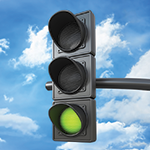
A setting on some newer machines that will automatically detect when you put your mask on, and start the airflow.
The hose that carries the air from your machine to the mask on your face. The standard length is 6ft but tubes are available in varying lengths.
Z1™ cpap machine uses a proprietary Z-Breathe™ algorithm that learns from your breathing pattern and relieves machine pressure on exhalation. This feature is similar to EPR.
Back to Top





